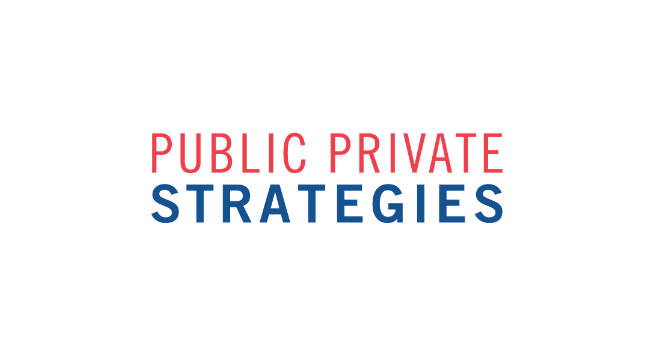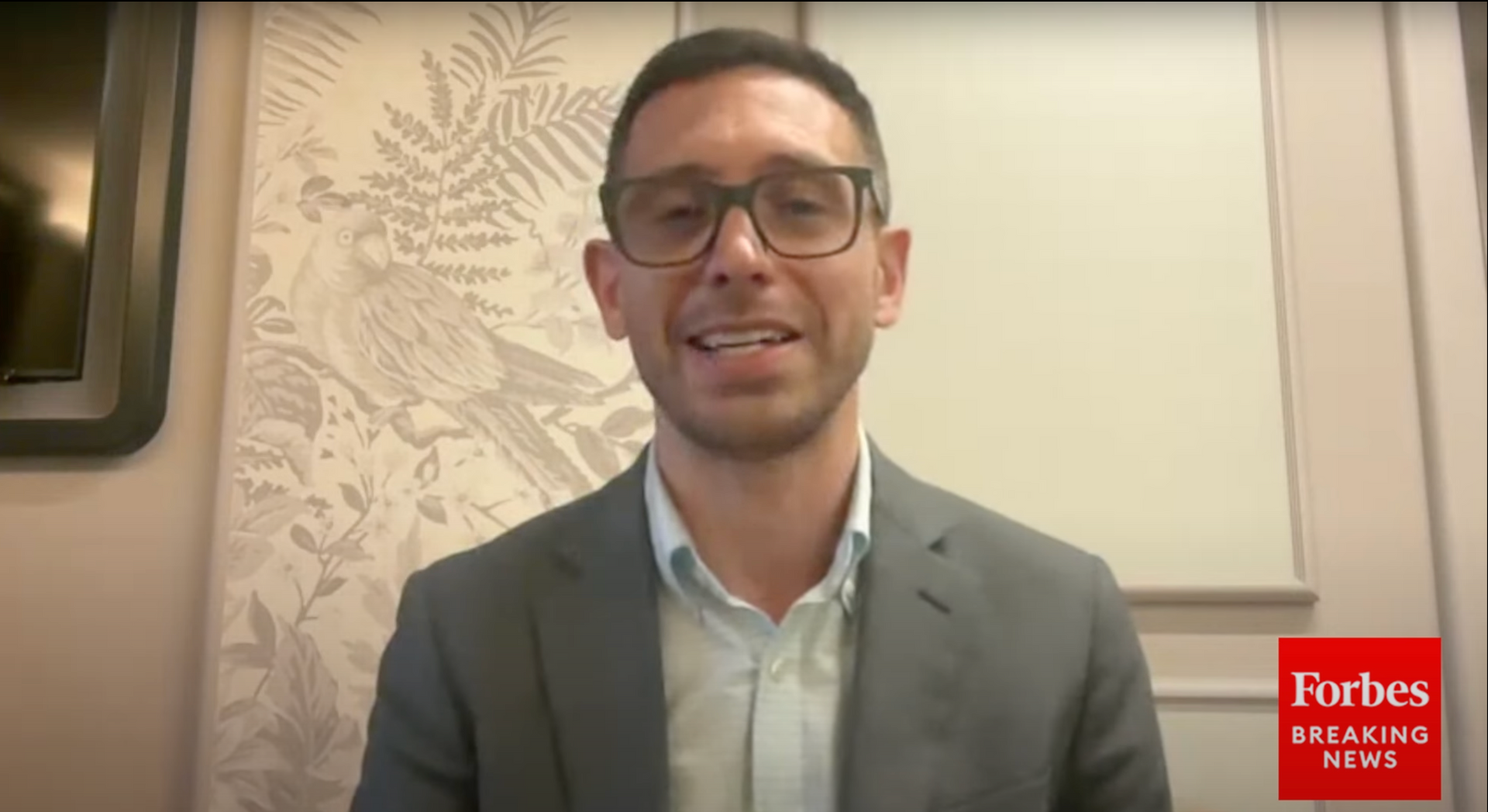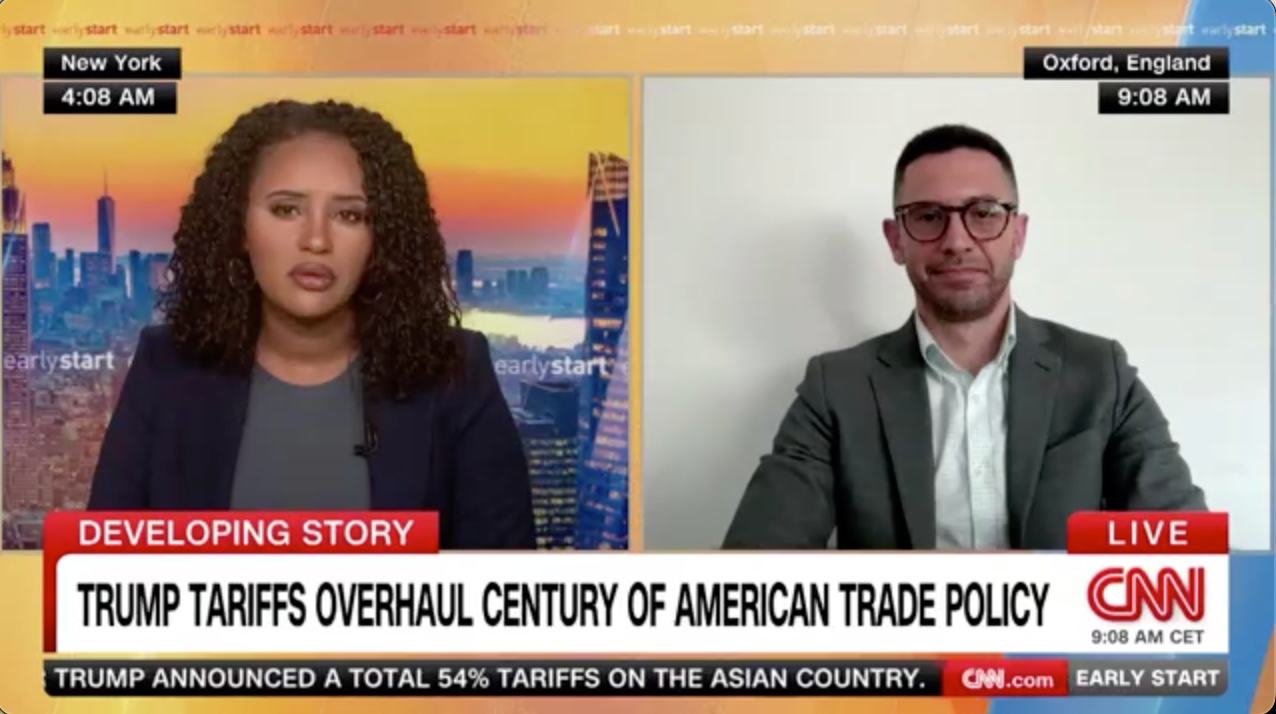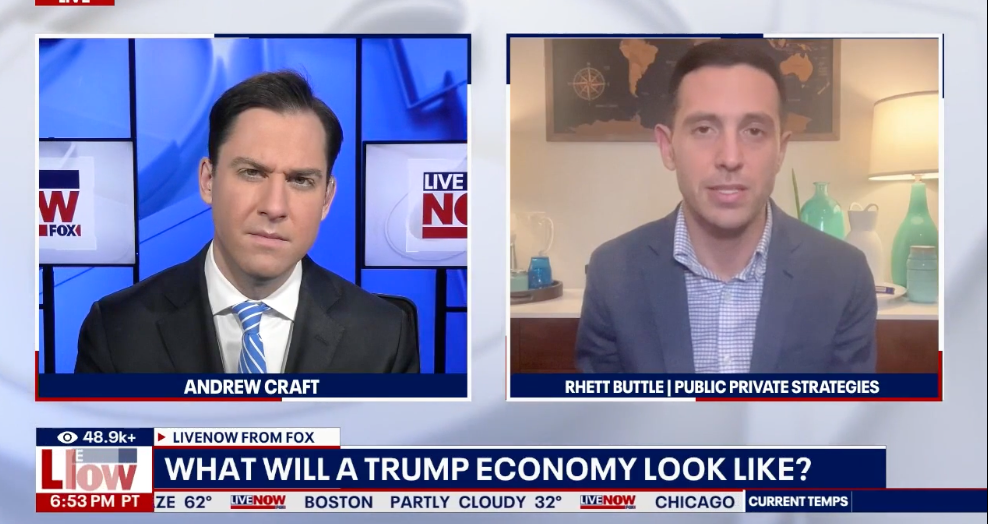6 Ways Businesses Can Support Working Caregivers During COVID-19
Rhett Buttle • July 22, 2020

Getty
This pandemic has impacted the lives of every American, some more severely than others, and is straining our economy in never-before-seen ways. Businesses are fighting day-to-day to stay afloat, with many closing and millions of their employees filing for unemployment. Amid all this chaos, working family caregivers have also been quietly struggling to keep their heads above water as they balance what were already demanding challenges of meeting the requirements of their jobs and caring for loved ones. In fact, it is projected that unaddressed loss of productivity
due to caregiving costs businesses an estimated $17.1 billion to $33 billion each year. Today, in the wake of COVID-19, these losses could be much higher if unabated.
One in six Americans in the workforce are also caregivers for an adult, and COVID-19 has exacerbated the stress of caring for a loved one. For example, the 20 hours a week working caregivers spend, on average, providing care has likely increased as they take extra measures to protect themselves and their loved ones from contracting this horrendous virus. Even before the pandemic hit us, a 2017 Harvard Business Review
study found that more than 80% of employees who are caregivers said that it impacted their productivity. Most notably, 33% said it affected their ability to do their best work all the time. Imagine what that survey would say today.
As a business owner, you know that your employees are your greatest asset. Now is an opportunity to support your workers who are also our nation’s caregivers. Here are six steps that you can take.
1. Clearly communicate with your employees.
In times like these, there is no such thing as overcommunication. Give your employees real-time updates on your business, the steps you are taking to support those that have caregiving responsibilities, and your plans for keeping them up-to-speed during this unpredictable time. There are many resources to guide you in this process, including the Ragan Consulting Group’s “9 steps for communicating with employees during the COVID-19 crisis.”
2. Make a plan and implement it.
Determine how to adapt your business operations to meet the needs of family caregivers and begin doing so. Steps should include incorporating practices like cross-training to back-stop essential duties and preparing for employee absences due to personal illness or caring for ill family members. For more resources and guidance, check out the Small Business Caregiving Guide.
3. Review your sick leave and remote work policies.
Make sure that they are consistent with recommended guidance and clearly communicate these policies to employees. The U.S. Department of Labor’s resource center on COVID-19 and the American Workplace
is a good starting point for your research.
4. Explore flextime, telecommuting or part-time opportunities.
If you currently don’t have caregiver-friendly policies, instituting one or all of these practices can go a long way toward rectifying that. If your business is one that simply cannot implement any of these, be sure to communicate how you are making your workplace safe through other actions, such as deep-cleaning, limiting travel and asking employees to self-quarantine if they feel ill.
5. Understand federal, state, and city-level policies.
There are many programs in place to help you and your employees navigate caregiving responsibilities and costs. For example, California allows paid leave for those who cannot work because they are caring for a seriously ill loved one. Check your city and state government websites for guidance. Public Private Strategies has also developed a comprehensive list
of federal, state and local resources.
6. Encourage employees to embrace personal preparedness.
It is crucial that caregivers don’t neglect their own health during this crisis. Advise employees to watch their diet and take time for exercise and sleep. Also, encourage them to take standard steps to prepare for staying at home if needed and make a plan with family members and loved ones for if they get sick.
Whether you are a large corporation or a small business owner, these steps will go a long way in supporting the individuals that you work with and bolstering your business for the long term. COVID-19 has exposed the important role that small businesses and employers play in our society. By focusing on your employees who are also family caregivers, you can help your employees, communities and bottom line at the same time.
This piece originally appeared in Forbes on July 21, 2020. You can view it online here.
Rhett Buttle is the founder of Public Private Strategies, Executive Director of the Small Business Roundtable, Founder of the NextGen Chamber of Commerce, a Senior Fellow at The Aspen Institute, and a contributor for Forbes.
WANTING MORE NEWS? SIGNUP TODAY
Contact Us

*This article was written by Scripps News Staff. President Joe Biden announced that the government will cover 100% of Hurricane Helene cleanup costs for the next several months to pay for the urgent work to clear the mud, remove downed trees and provide temporary housing. The federal support comes as residents in multiple Southeastern states are still struggling to return to normal following last week’s storm that killed over 200 people. Katie Vlietstra Wonnenberg, a small business advocate and political strategist, said it is going to take a significant amount of time to finish the cleanup, no matter how hard the federal government works. Read the entire piece on Scripps News.

WASHINGTON, D.C. – This month marks the anniversary of two pivotal pieces of legislation that are helping fuel a small business boom, the CHIPS & Science Act and the Inflation Reduction Act. Over the past four years, there has been a historic growth of American entrepreneurship across the country, with over 18 million new business applications filed, each one an act of hope and optimism in our economic future. This small business boom is fueled by investments like the Inflation Reduction Act and the CHIPS & Science Act. Rhett Buttle, Founder and CEO of Public Private Strategies, released the following statement: “As we mark the two-year anniversaries of the CHIPS & Science Act and the Inflation Reduction Act, the positive impact across the business landscape, and particularly for entrepreneurs, is unmistakable. The CHIPS & Science Act is fueling entrepreneurship opportunities by dedicating over $50 million to help develop new ideas and technologies to strengthen domestic semiconductor production and supply chain. “The Inflation Reduction Act has helped lower costs for workers and consumers, driving up demand for small businesses across the country. The healthcare provisions of the Inflation Reduction Act alone are saving millions Americans an average of $800 per year on health insurance premiums. These investments have helped fuel America’s small business boom, including a record 18 million new small business applications filed over the past four years. “We have more work to do to address the issues that business owners have consistently said are their top priorities, from lowering health care and prescription drug costs to expanding and streamlining contracting opportunities for small employers to strengthening and protecting American democracy . We remained committed to working with business leaders to address these challenges and ensure these investments are implemented effectively to grow economies and support communities all across the country.” ### About Rhett Buttle Founder & CEO, Public Private Strategies President, Public Private Strategies Institute Senior Fellow, The Aspen Institute Rhett Buttle is an entrepreneur, advocate, and one of the most trusted leaders at the intersection of business and policy in Washington, DC. He has worked for President Biden, Vice President Harris, President Barack Obama, Secretary of State Hillary Clinton, and Governor Arnold Schwarzenegger in government and campaign roles. Rhett is the founder of Public Private Strategies (PPS) and President of the Public Private Strategies Institute (PPSI), which works to bring together the public and private sectors to build coalitions, activate campaigns, and create strategic partnerships to drive policy and market outcomes. In these roles, he advises leading policy makers, foundations, nonprofits, and corporations. In addition to PPS and PPSI, he has helped found the Small Business Roundtable, Small Business for America’s Future, and the Next Gen Chamber of Commerce. He is also a Senior Fellow at the Aspen Institute and a regular contributor to Forbes, where he writes on the intersection of business, policy, and politics. Rhett has also been featured in The New York Times, CNN, The Wall Street Journal, and several other business publications. About Public Private Strategies Public Private Strategies (PPS) creates opportunities where the public and private sectors meet. We bring together diverse allies including foundations, associations, corporations, small businesses, and entrepreneurs to solve pressing societal challenges. By harnessing the power of the private sector, we build coalitions, activate campaigns, and create strategic partnerships to drive desired policy and market outcomes. Learn more at www.publicprivatestrategies.com .

WASHINGTON, D.C. – This month marks the anniversary of two pivotal pieces of legislation that are helping fuel a small business boom, the CHIPS & Science Act and the Inflation Reduction Act. Over the past four years, there has been a historic growth of American entrepreneurship across the country, with over 18 million new business applications filed, each one an act of hope and optimism in our economic future. This small business boom is fueled by investments like the Inflation Reduction Act and the CHIPS & Science Act. Rhett Buttle, Founder and CEO of Public Private Strategies, released the following statement: “As we mark the two-year anniversaries of the CHIPS & Science Act and the Inflation Reduction Act, the positive impact across the business landscape, and particularly for entrepreneurs, is unmistakable. The CHIPS & Science Act is fueling entrepreneurship opportunities by dedicating over $50 million to help develop new ideas and technologies to strengthen domestic semiconductor production and supply chain. “The Inflation Reduction Act has helped lower costs for workers and consumers, driving up demand for small businesses across the country. The healthcare provisions of the Inflation Reduction Act alone are saving millions Americans an average of $800 per year on health insurance premiums. These investments have helped fuel America’s small business boom, including a record 18 million new small business applications filed over the past four years. “We have more work to do to address the issues that business owners have consistently said are their top priorities, from lowering health care and prescription drug costs to expanding and streamlining contracting opportunities for small employers to strengthening and protecting American democracy . We remained committed to working with business leaders to address these challenges and ensure these investments are implemented effectively to grow economies and support communities all across the country.” ### About Rhett Buttle Founder & CEO, Public Private Strategies President, Public Private Strategies Institute Senior Fellow, The Aspen Institute Rhett Buttle is an entrepreneur, advocate, and one of the most trusted leaders at the intersection of business and policy in Washington, DC. He has worked for President Biden, Vice President Harris, President Barack Obama, Secretary of State Hillary Clinton, and Governor Arnold Schwarzenegger in government and campaign roles. Rhett is the founder of Public Private Strategies (PPS) and President of the Public Private Strategies Institute (PPSI), which works to bring together the public and private sectors to build coalitions, activate campaigns, and create strategic partnerships to drive policy and market outcomes. In these roles, he advises leading policy makers, foundations, nonprofits, and corporations. In addition to PPS and PPSI, he has helped found the Small Business Roundtable, Small Business for America’s Future, and the Next Gen Chamber of Commerce. He is also a Senior Fellow at the Aspen Institute and a regular contributor to Forbes, where he writes on the intersection of business, policy, and politics. Rhett has also been featured in The New York Times, CNN, The Wall Street Journal, and several other business publications. About Public Private Strategies Public Private Strategies (PPS) creates opportunities where the public and private sectors meet. We bring together diverse allies including foundations, associations, corporations, small businesses, and entrepreneurs to solve pressing societal challenges. By harnessing the power of the private sector, we build coalitions, activate campaigns, and create strategic partnerships to drive desired policy and market outcomes. Learn more at www.publicprivatestrategies.com .




